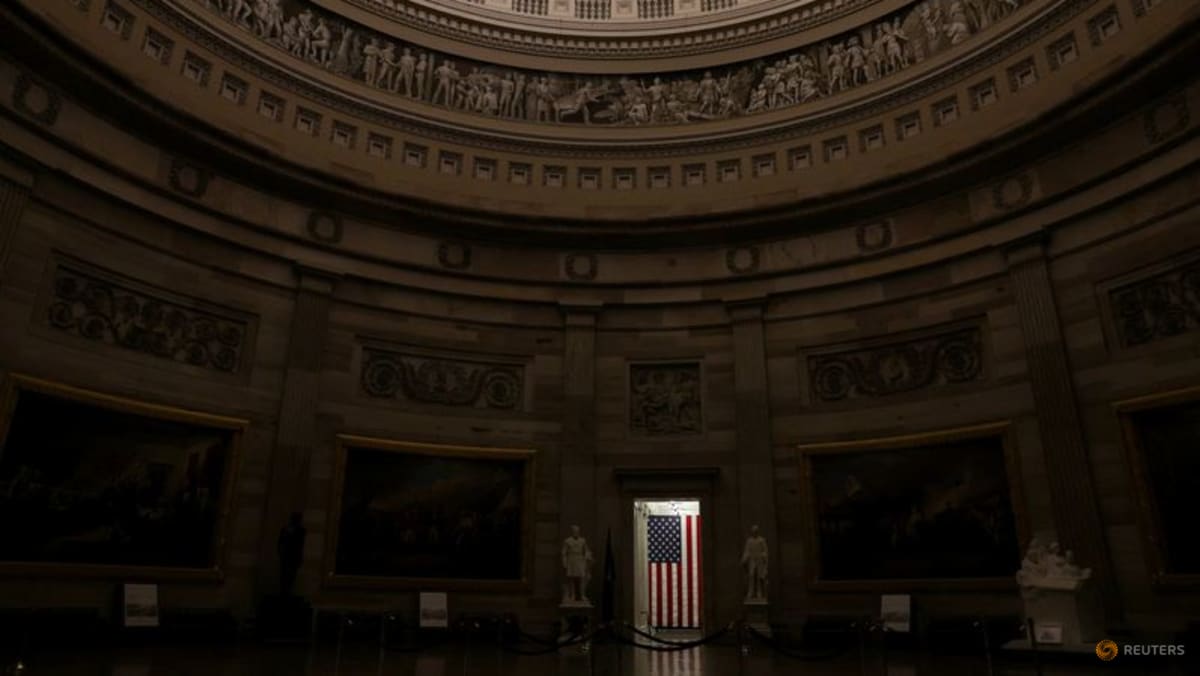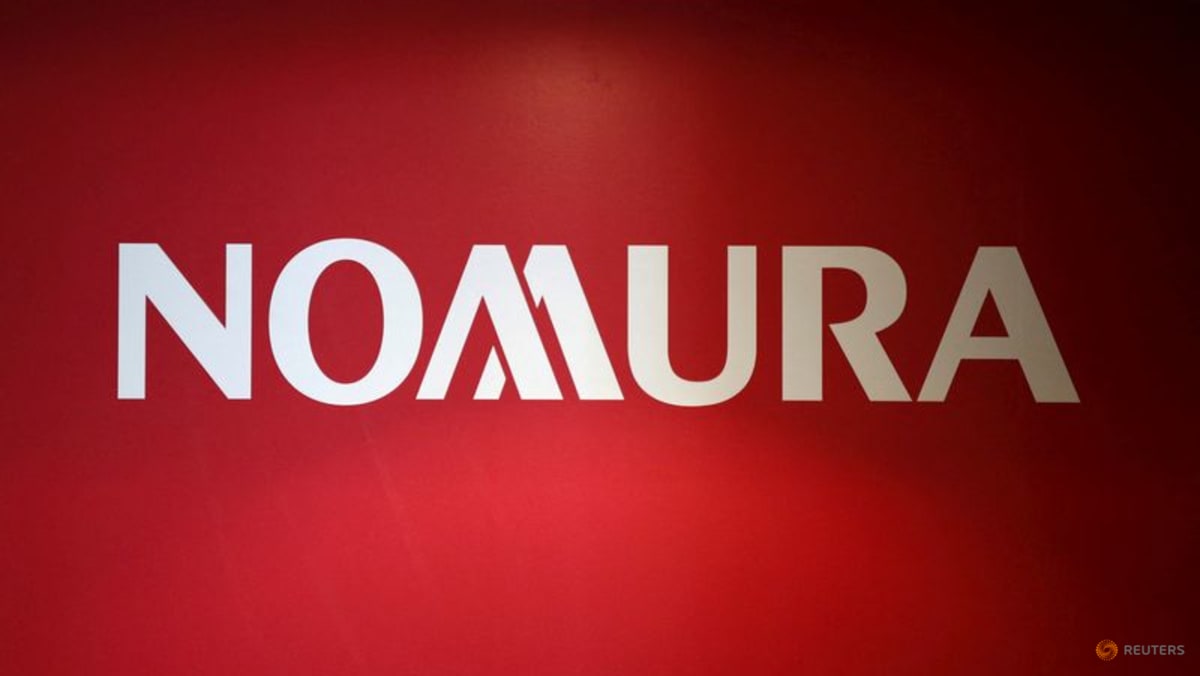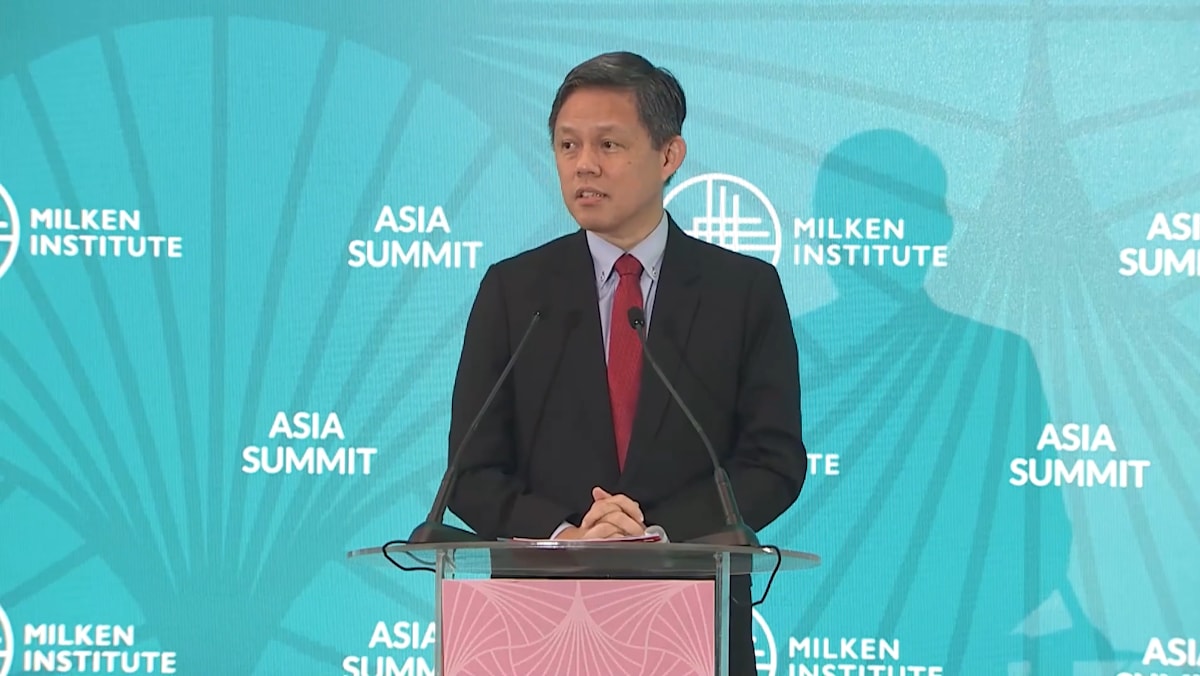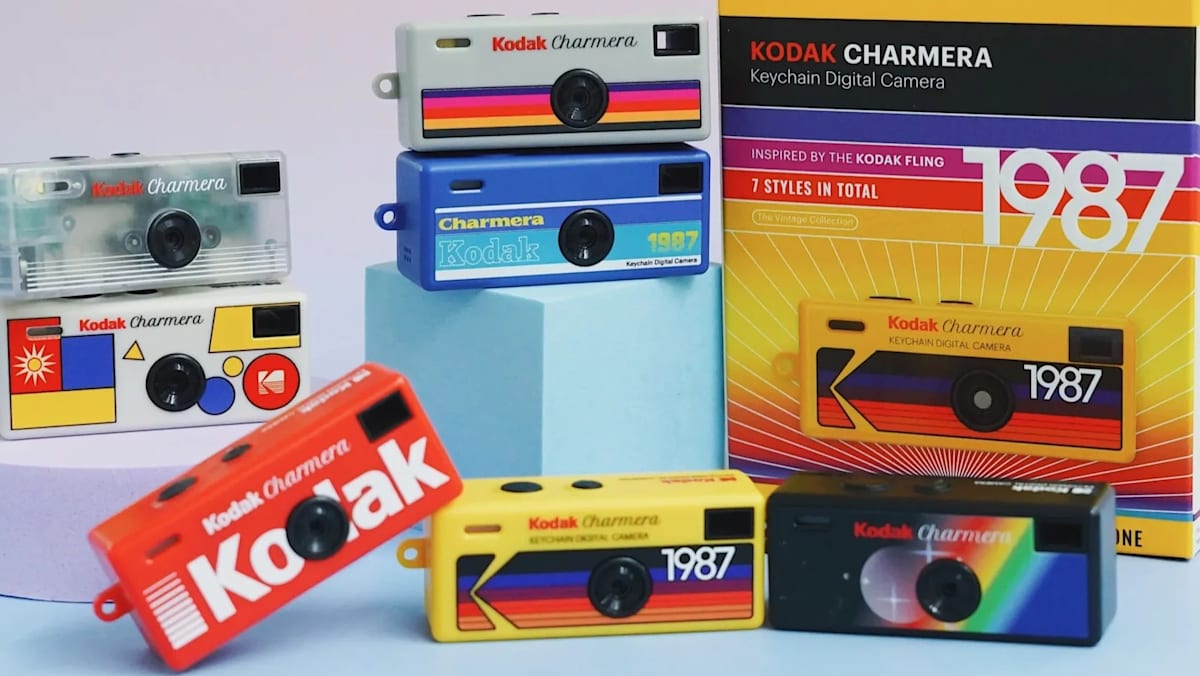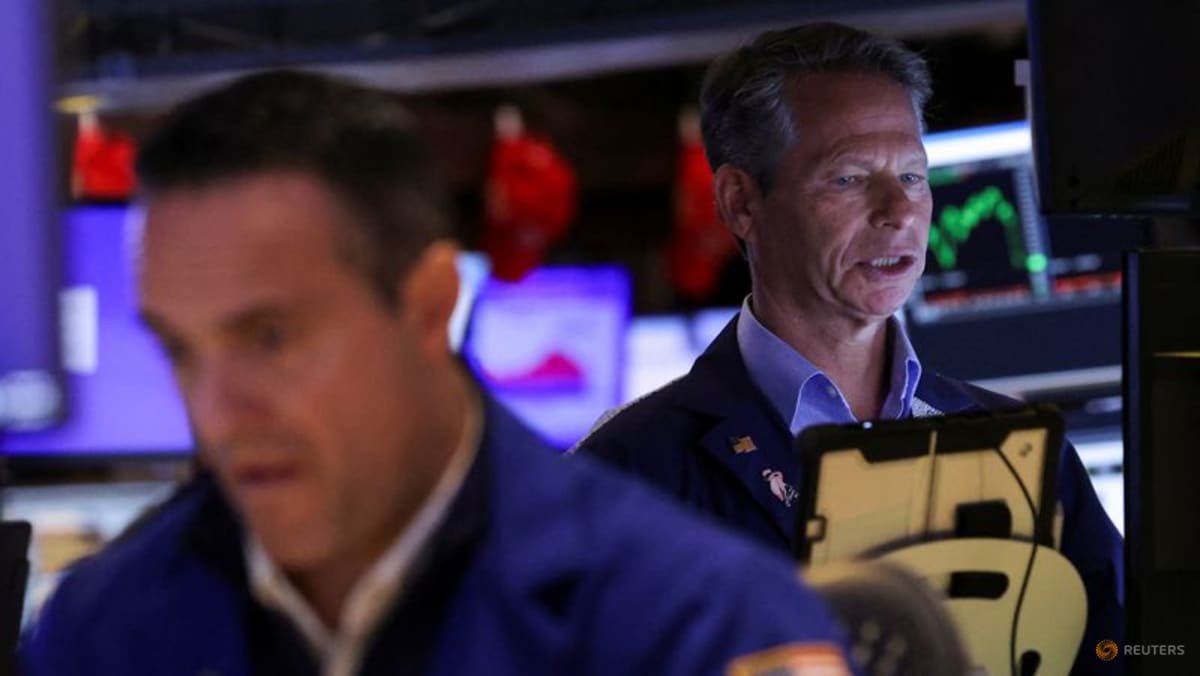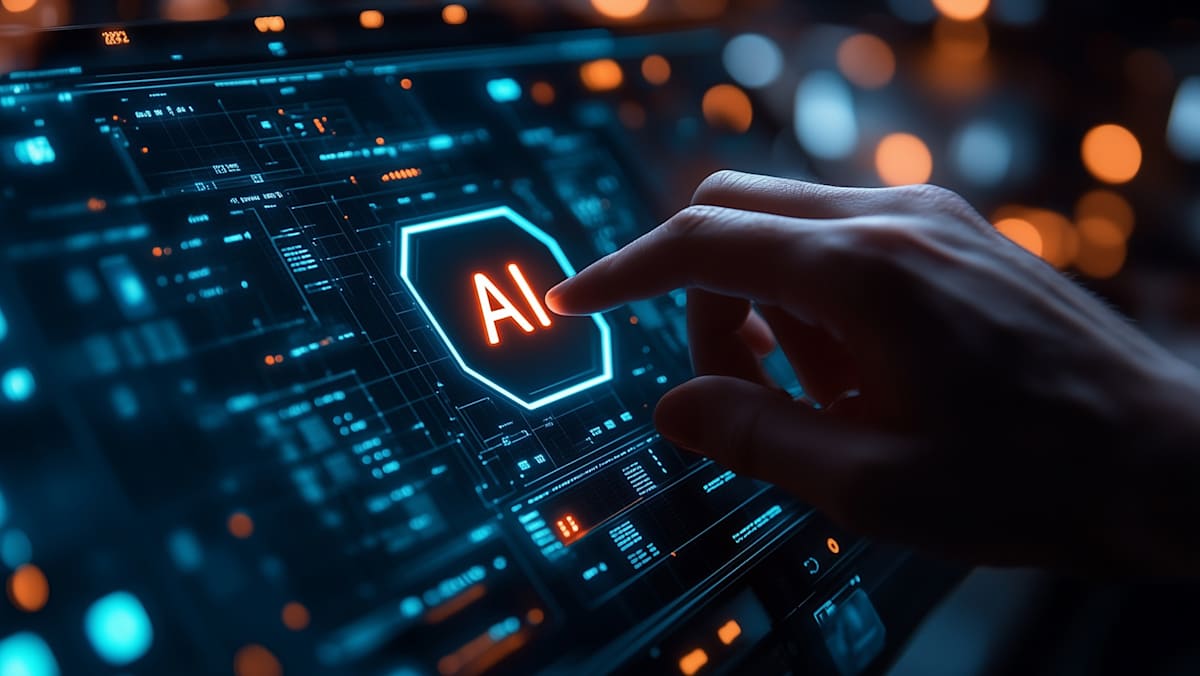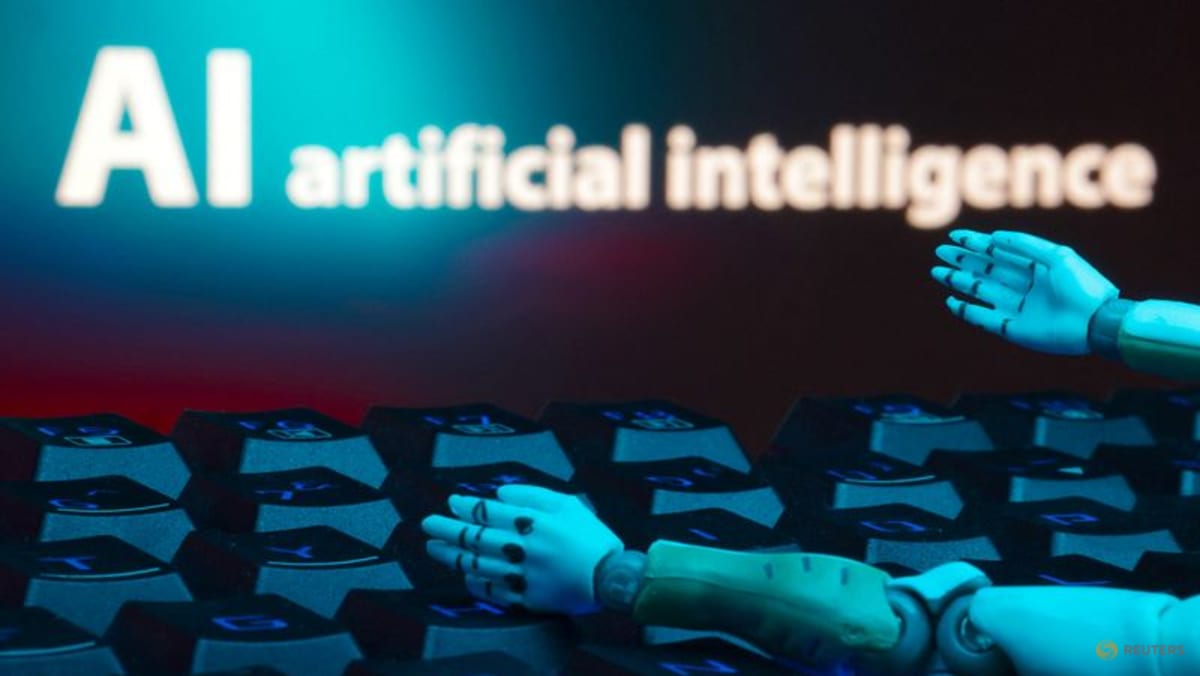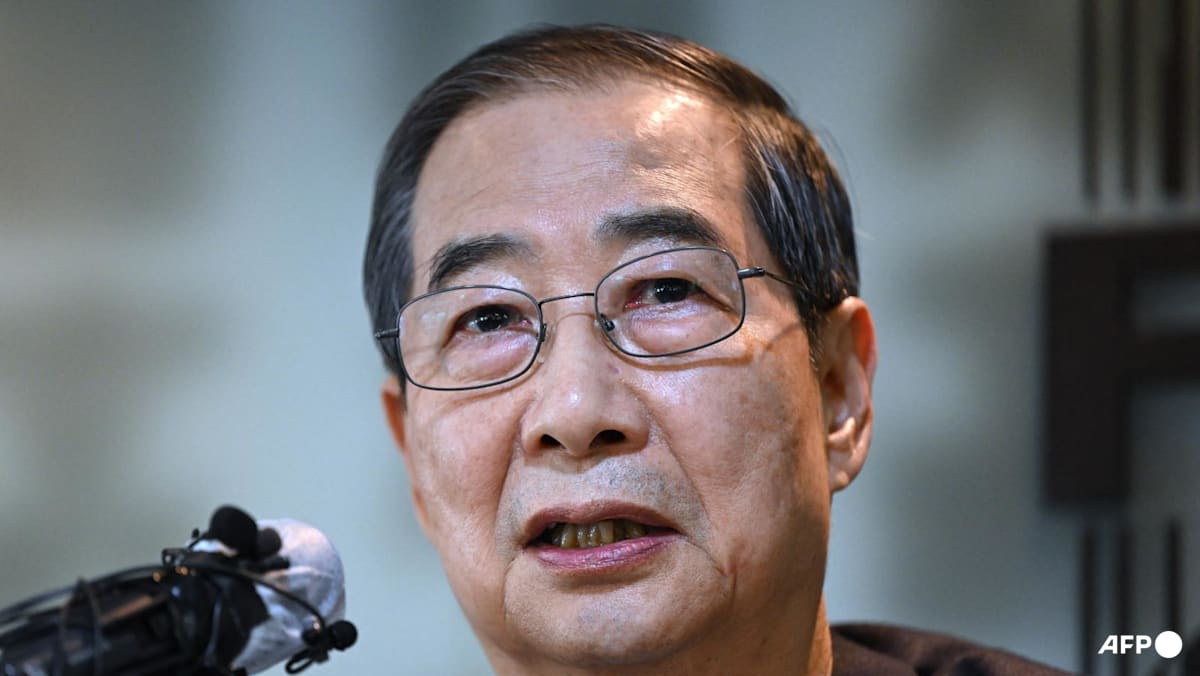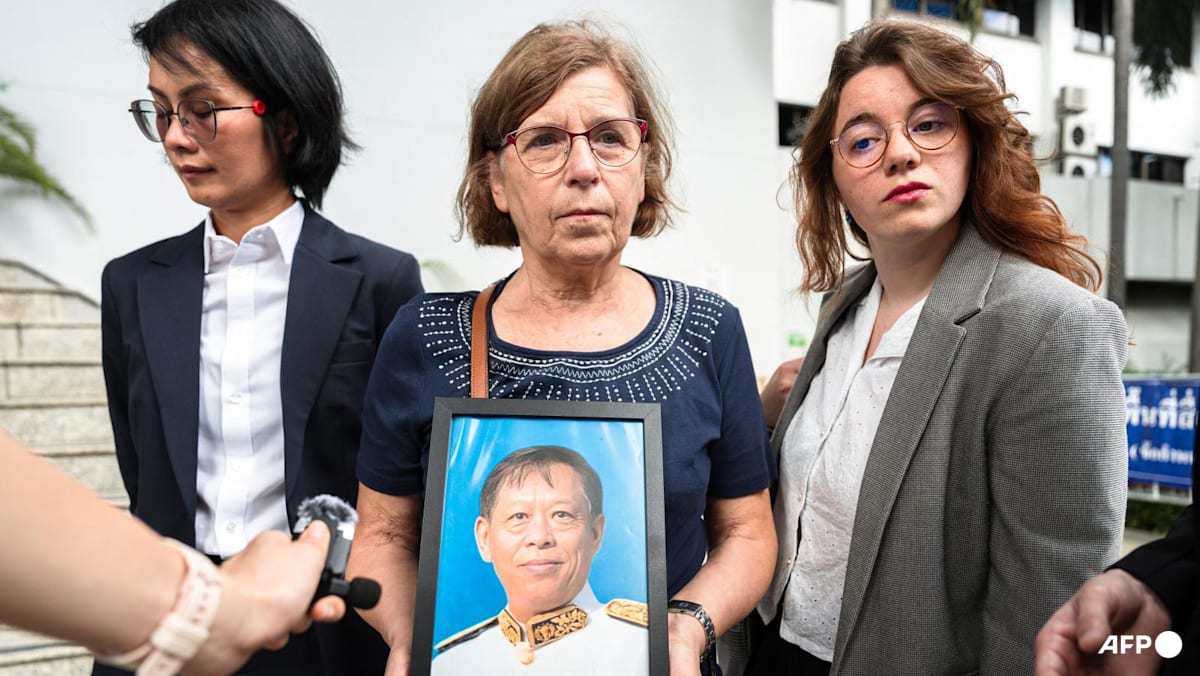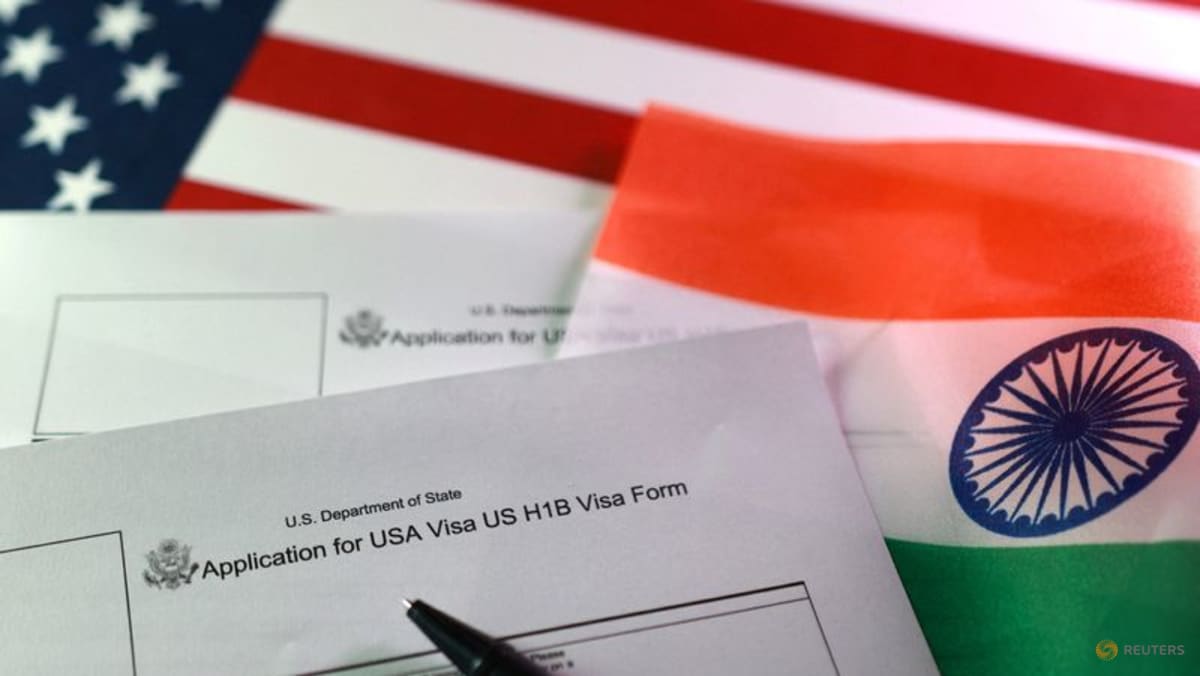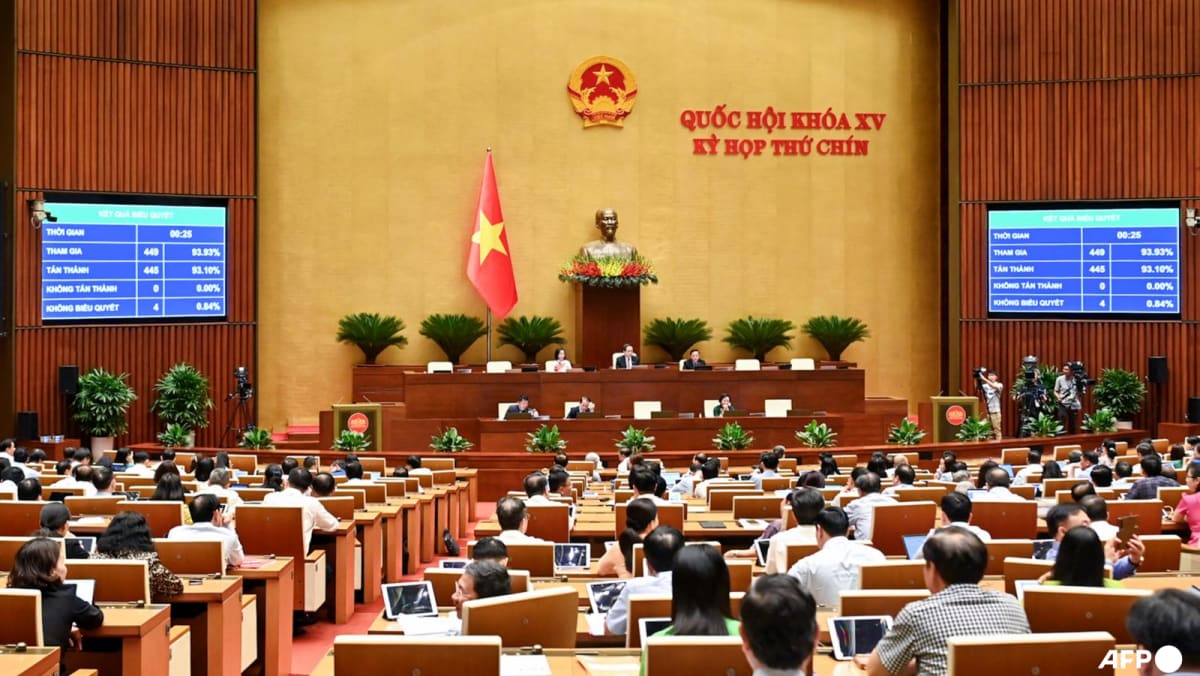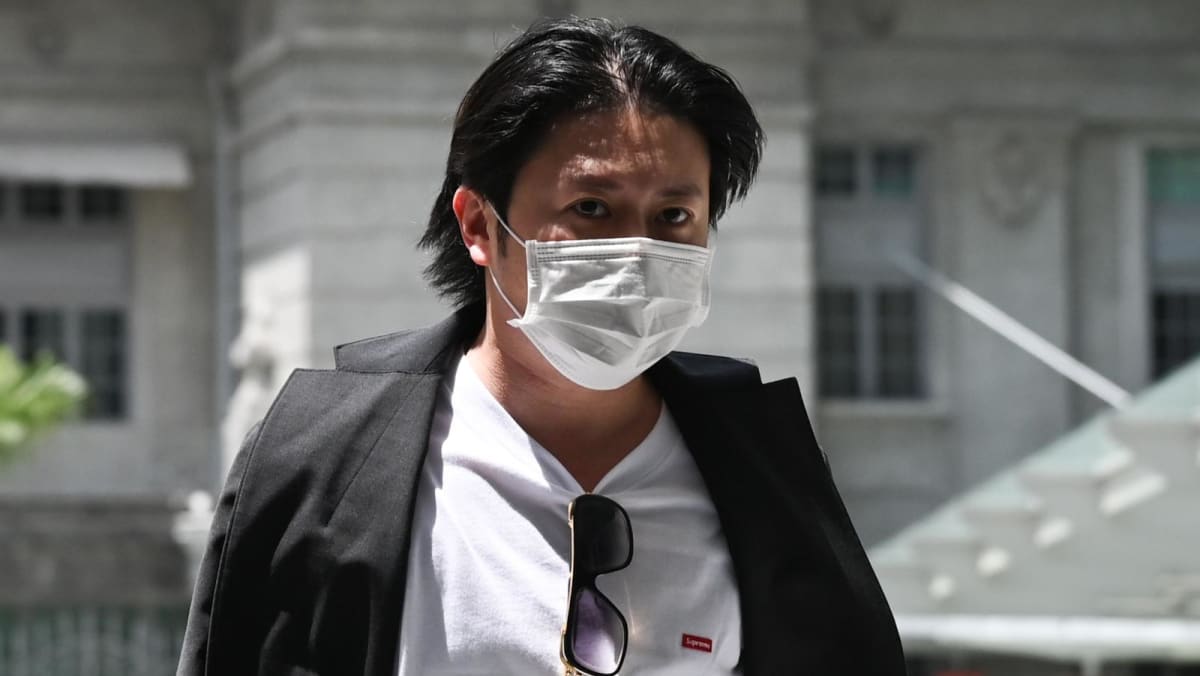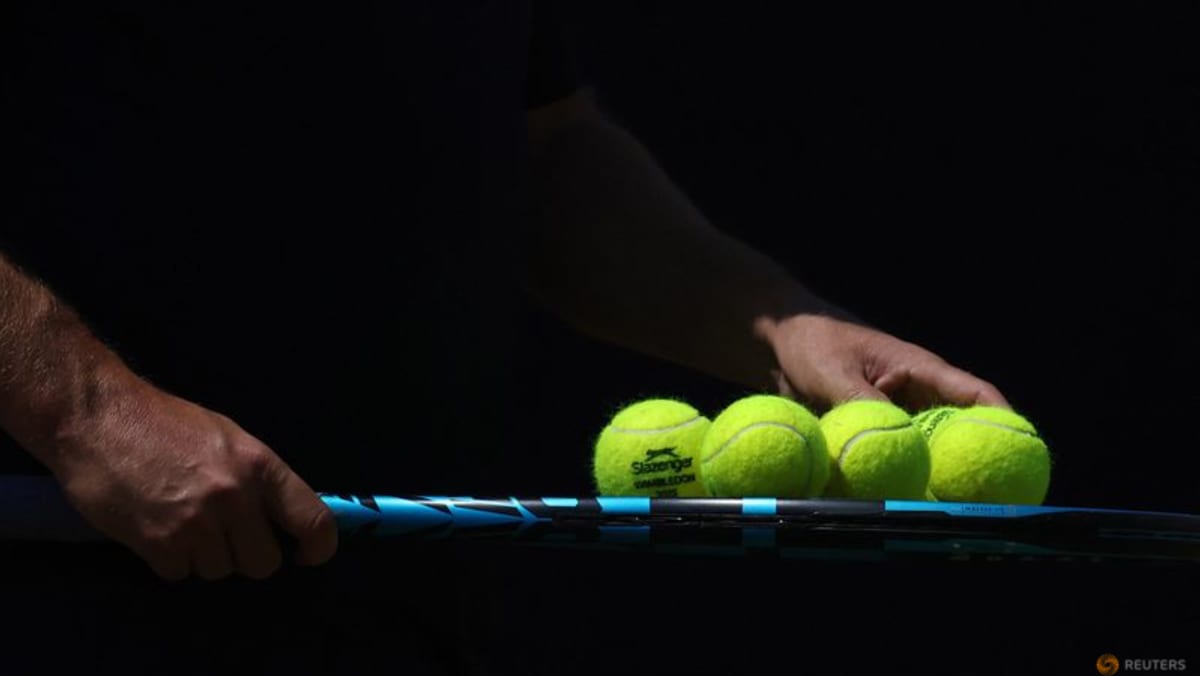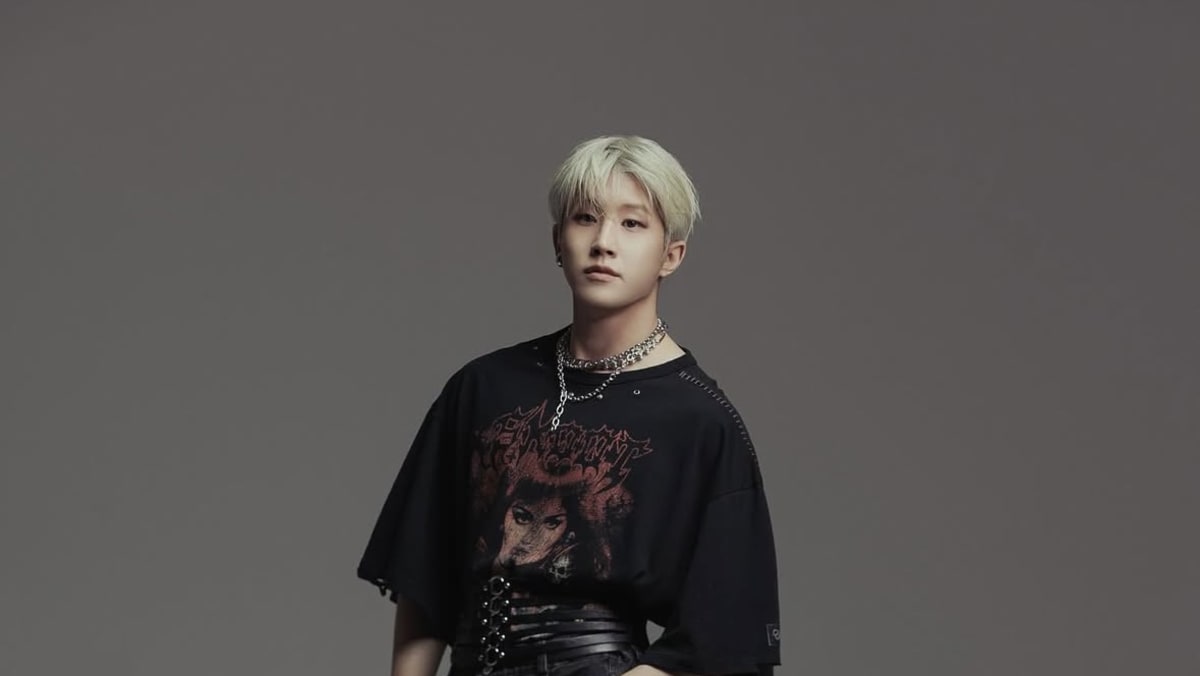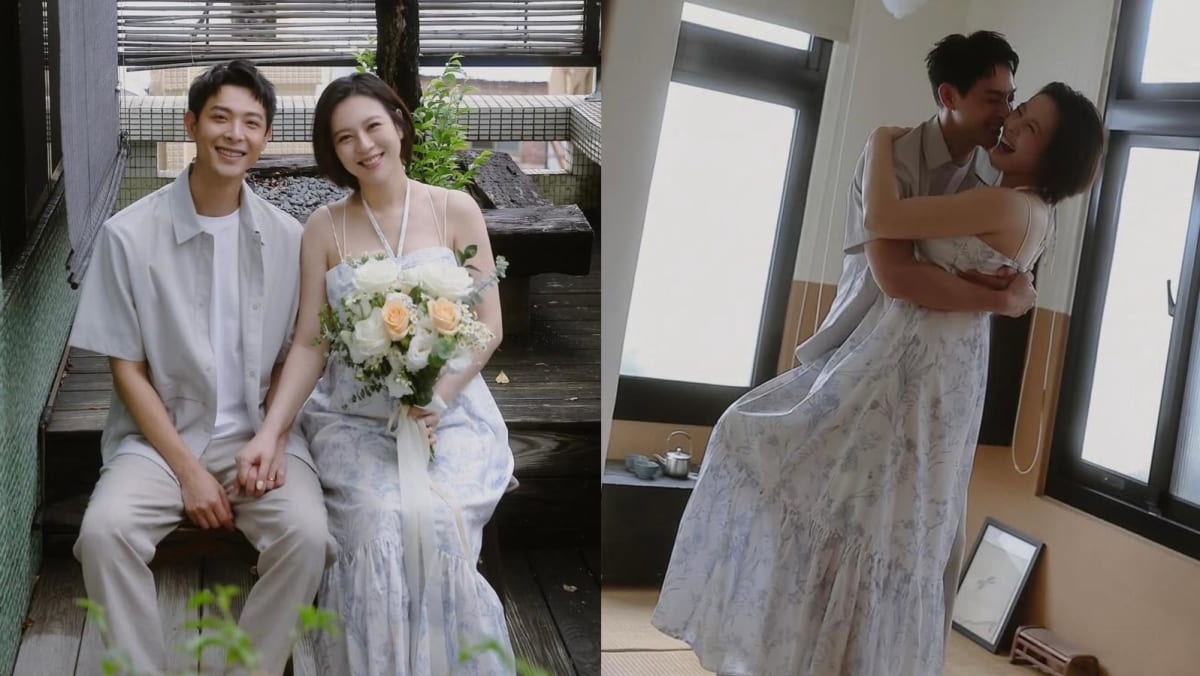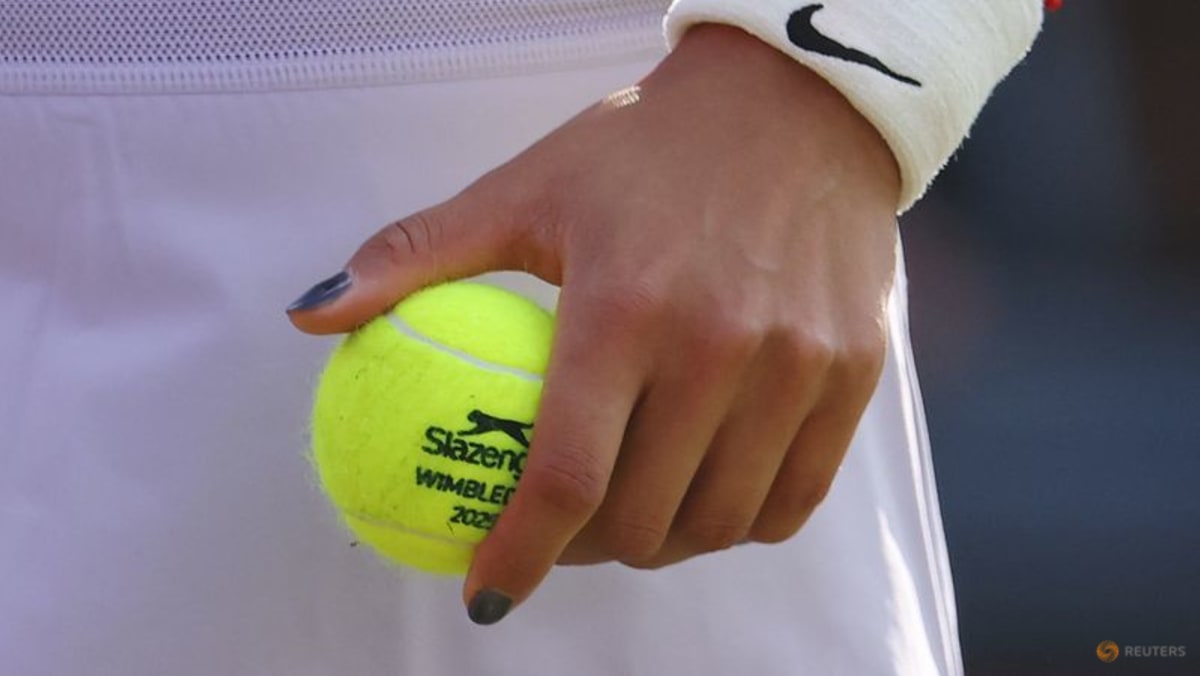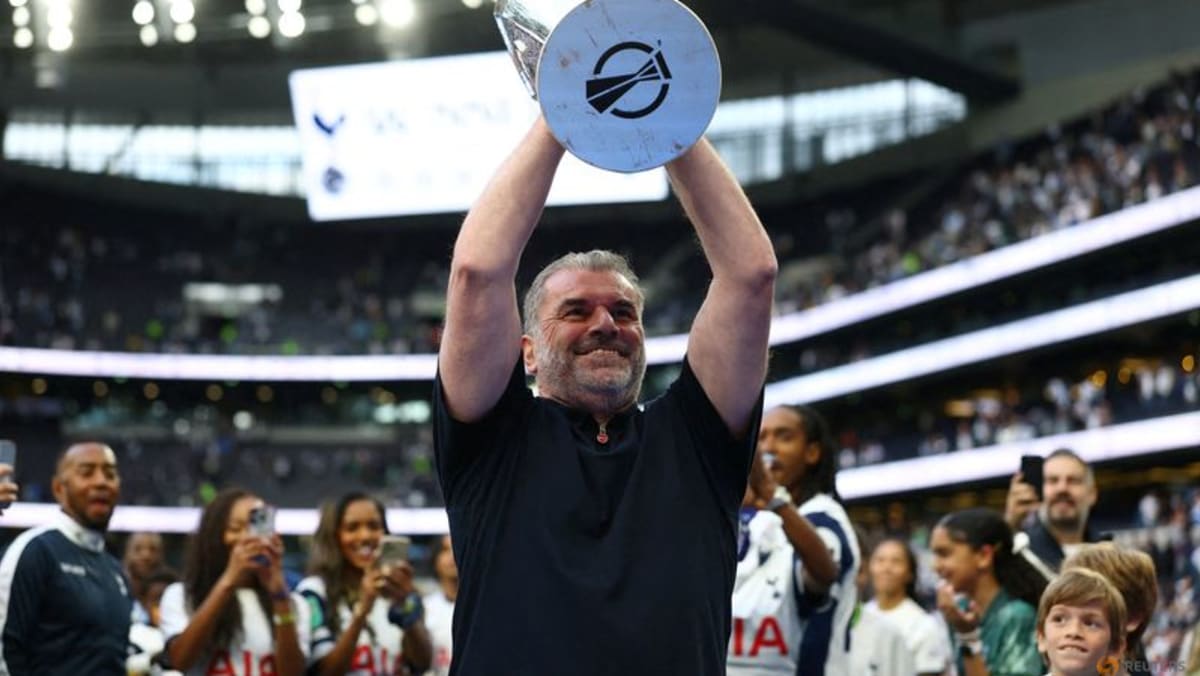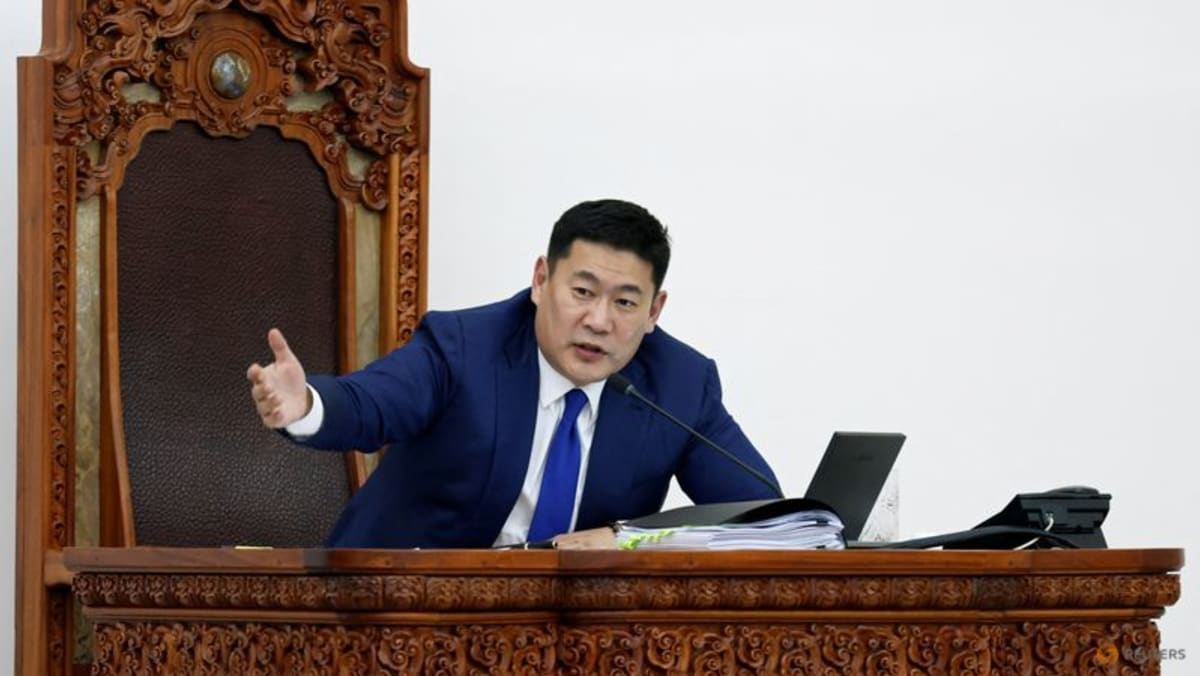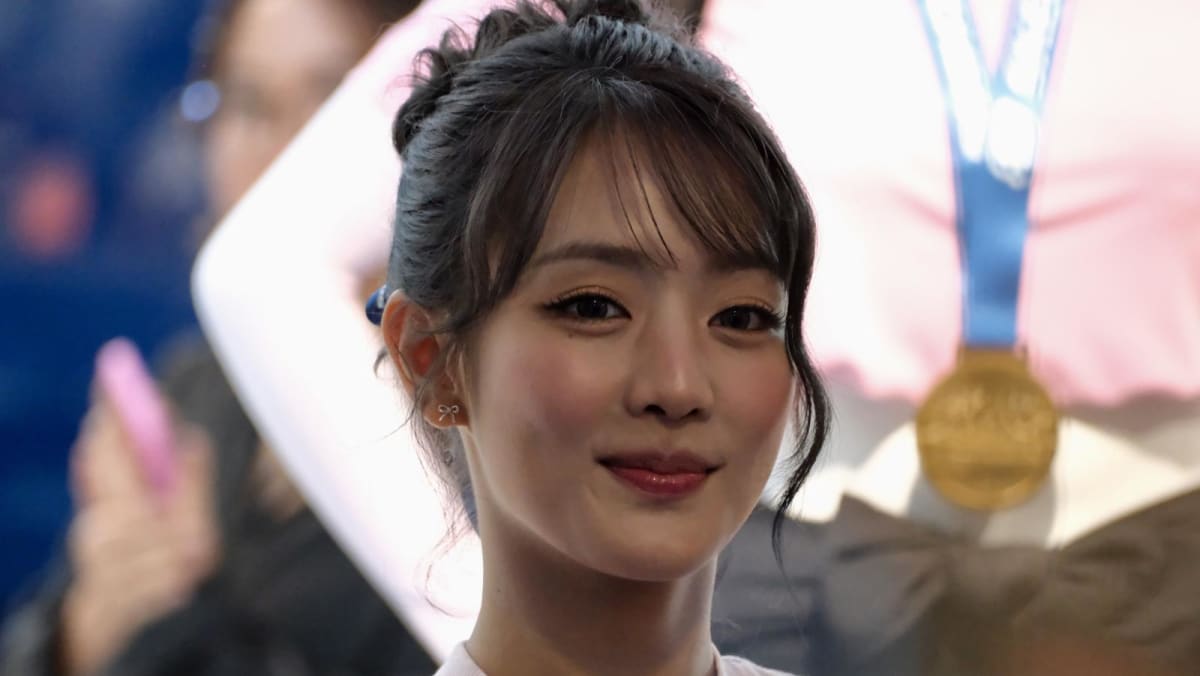CNA Lifestyle’s Hazeeq Sukri spent the weekend watching the final season of the pop culture phenomenon Squid Game, as well as the new hit animated movie that’s been the talk of the town. And there’s one clear winner.
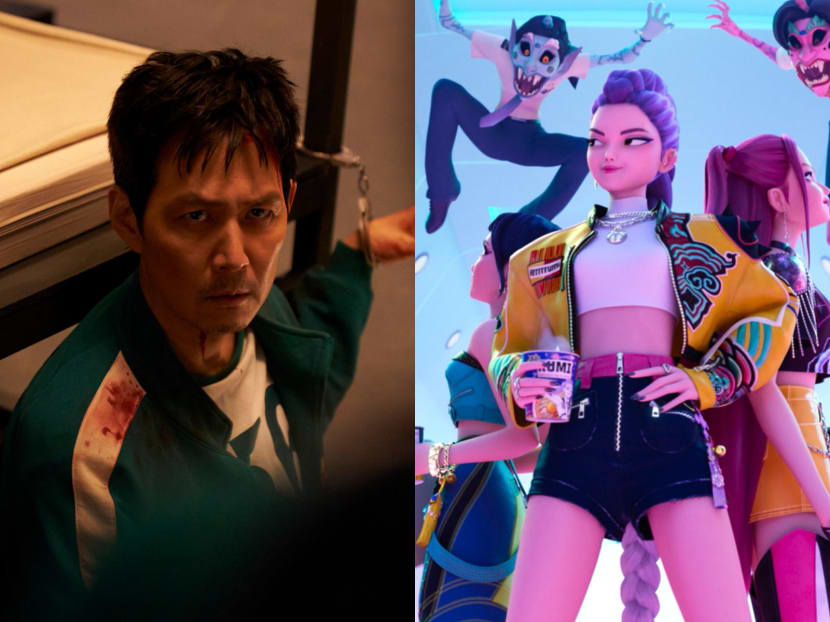
From left: Lee Jung-jae as Seong Gi-hun in Squid Game Season 3 and the main characters of KPop Demon Hunters. (Photos: Netflix)
New: You can now listen to articles.

This audio is generated by an AI tool.
Over the weekend, I finally watched the hit Netflix programme set in South Korea that’s been making waves worldwide, starring Lee Byung-hun as a mysterious and intimidating villain fighting against a group of underdogs opposing his evil manipulation.
That programme is called KPop Demon Hunters, and I enjoyed every single minute of it.
The plot, soundtrack, and characterisation are all top-notch, and suffice it to say, the hype behind the movie is well-justified.
Oh, and I also watched Squid Game Season 3.
WHAT WENT WRONG WITH SQUID GAME SEASON 3?
The final season of the hit South Korean drama concluded last week, and speaking as someone who was a Day 1 supporter, I can honestly say the franchise should have been a one-season thing.
Mild spoilers ahead.
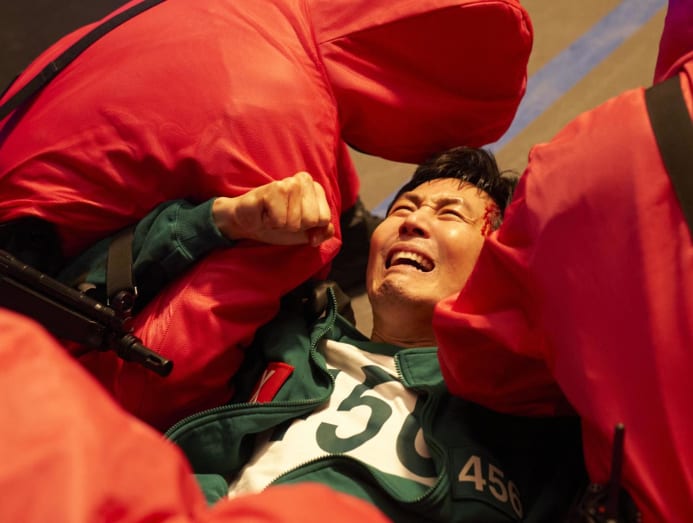 Lee Jung-jae in a scene from Squid Game Season 3. (Photo: Netflix)
Lee Jung-jae in a scene from Squid Game Season 3. (Photo: Netflix)
Squid Game Season 3 wasn’t bad per se. I just found it underwhelming. The acting, especially from Lee Jung-jae and Kang Ae-shim, hard-carried this season and unlike many fans, I thought the ending kept true to the tone of the show and Gi-hun as a character.
What I hated, however, was how inconsequential all three seasons of Squid Game are in retrospect.
For those who have watched every single Squid Game episode, answer me this: Do we know more about the show since the first season's finale?
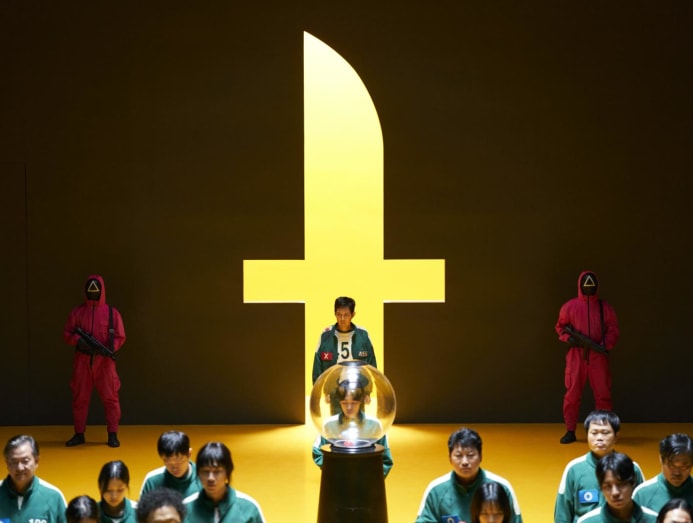 The cast of Squid Game Season 3. (Photo: Netflix)
The cast of Squid Game Season 3. (Photo: Netflix)
The show’s refusal to shed light on the history of the Games – and the people behind them – has been one of the franchise’s most frustrating aspects.
Most TV shows expand on their universe’s lore in successive seasons, but Squid Game relishes in keeping things status quo.
Normally, this wouldn’t be a problem if we had stellar writing to fall back on. Unfortunately, on average, this season has one of the worst pacing and character assassinations I’ve seen in a long time.
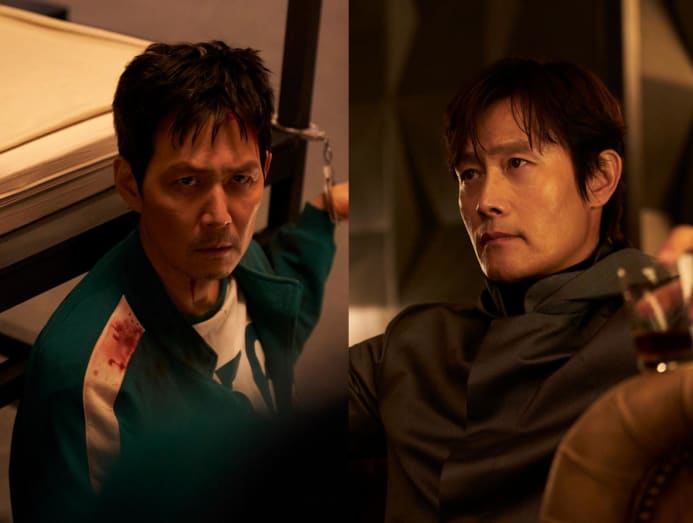 Lee Jung-jae and Lee Byung-hun in Squid Game Season 3. (Photos: Netflix)
Lee Jung-jae and Lee Byung-hun in Squid Game Season 3. (Photos: Netflix)
Lee Jung-jae’s Gi-hun and Lee Byung-hun’s In-ho are essentially reduced to supporting characters in their own franchise, with their lack of screentime and lines. Heck, Gi-hun barely said anything in the first three episodes this season.
Instead, we get more scenes of Wi Ha-joon’s Jun-ho on a boat with his mercenary crew.
I’ve said this once, and I’ll say it again: Jun-ho’s subplot is one of the worst things concocted in the history of fiction.
It literally did not serve a purpose. What do you mean you spent the past two seasons chasing your brother – and getting lots of people killed in the process – only for your dramatic confrontation to last five seconds and be a play-by-play repeat of the first season’s finale?
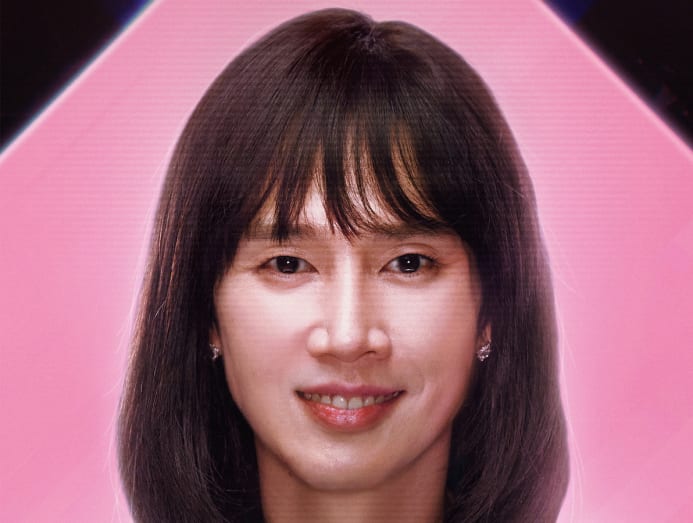 Park Sung-hoon as Cho Hyun-ju. (Photo: Netflix)
Park Sung-hoon as Cho Hyun-ju. (Photo: Netflix)
And then we have the handling of the characters introduced in Season 2. I previously said these characters were beautifully written and enriched the story.
Well, that doesn’t matter in Season 3 because 90 per cent of them get unceremoniously killed off or do actions that go against everything we know about them.
The creators of Squid Game have continuously said that the events of Squid Game reflect the realities of the world, but there’s only so many times you can use that excuse to mask bad writing.
A lot of scenes in Season 3 could have been removed or expanded to better highlight the characters’ thought processes.
Because you know you’ve done a bad job with the story if a character’s motivations are revealed in an interview instead of in the show.
WHAT WENT RIGHT WITH KPOP DEMON HUNTERS?
On the other hand, we have KPop Demon Hunters, which made full use of its 100-minute-long runtime to introduce viewers to a rich world, develop its heroes and villains – all while delivering a soundtrack that stands toe-to-toe with some of the best K-pop songs in recent times.
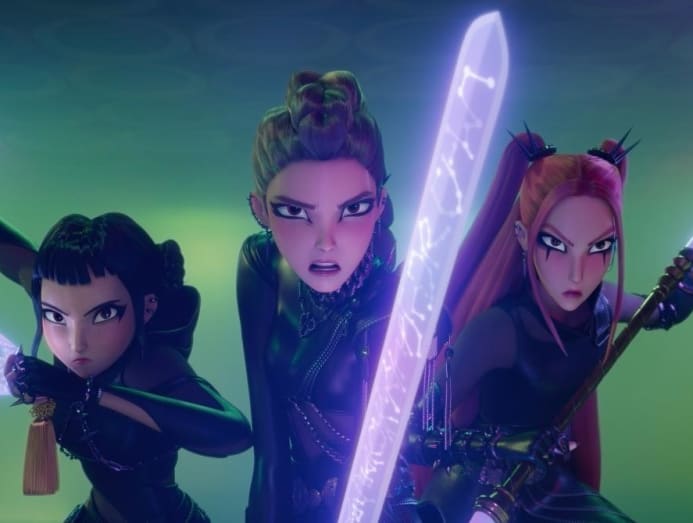 From left: Zoey, Rumi and Mira – the main characters of KPop Demon Hunters. (Photo: Netflix)
From left: Zoey, Rumi and Mira – the main characters of KPop Demon Hunters. (Photo: Netflix)
Sure, it’s cheesy at times but KPop Demon Hunters embraces its cheesiness while respectfully paying tribute to Korean culture and K-pop in general.
The phrase “show, don’t tell” is properly utilised in KPop Demon Hunters. We get a hint of the main characters’ backstories and insecurities in just a three-minute song called Golden.
See? It is possible to allude to a character’s motivations without leaving audiences to do their own research.
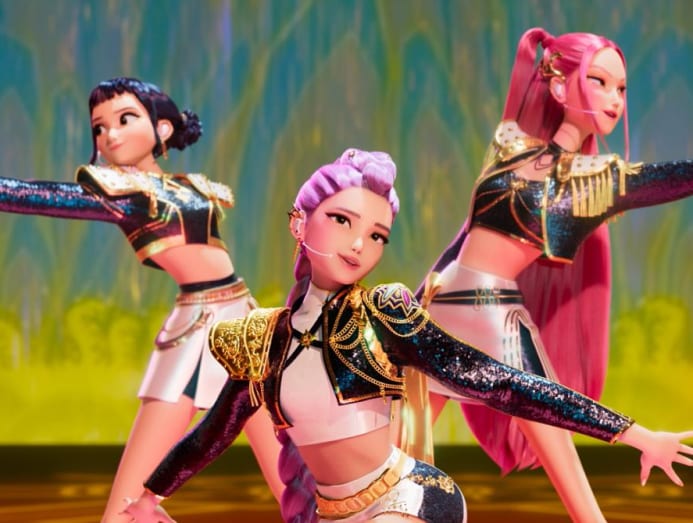 Zoey, Rumi and Mira are in a K-pop girl group called Huntrix. (Photo: Netflix)
Zoey, Rumi and Mira are in a K-pop girl group called Huntrix. (Photo: Netflix)
And the animation in this movie is just *chef’s kiss*. Sony Pictures Animation has been on a roll since the Spider-Verse movies and KPop Demon Hunters continues that trend.
The fighting scenes are beautifully choreographed to the stellar soundtrack, and the main characters feel like fully fleshed-out people, thanks to how fluid and expressive their movements are.
The songs of KPop Demon Hunters have gone viral on social media, and many new fans have admitted that they started watching the movie after listening to them.
That being said, I highly recommend going to the movie blind and experiencing the songs for the first time there.
Calling it an ethereal experience is an understatement.
SHOULD I WATCH SQUID GAME SEASON 3 OR KPOP DEMON HUNTERS?
By now, some of you might be saying that I’m comparing apples to oranges since both programmes cater to different demographics and sensibilities. And you know what, I'll concede to that.
However, the fact remains that I got way more enjoyment out of 100 minutes of KPop Demon Hunters than six hours of Squid Game Season 3.
You are more than welcome to use those seven hours and decide for yourself which is the better programme.
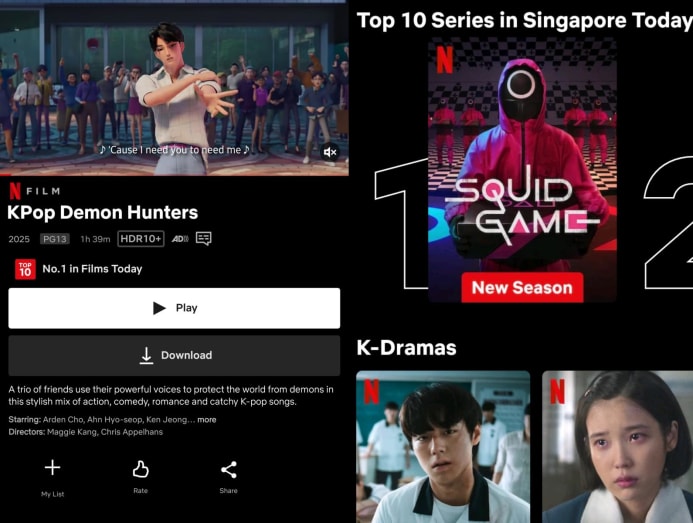 Both KPop Demon Hunters and Squid Game Season 3 are currently dominating charts. (Photos: Netflix)
Both KPop Demon Hunters and Squid Game Season 3 are currently dominating charts. (Photos: Netflix)
As of writing, both KPop Demon Hunters and Squid Game Season 3 are, respectively, the top movie and TV series in Singapore – so clearly, audiences resonated with something in them.
Given that final-minute cameo in Squid Game Season 3 and the wealth of potential stories in the KPop Demon Hunters, it’s obvious that both franchises will continue to get milked for the foreseeable future.
However, if David Fincher’s Squid Game USA is going to be anything like Squid Game Season 3, I’ll stick with Rumi and the rest of Huntrix.




